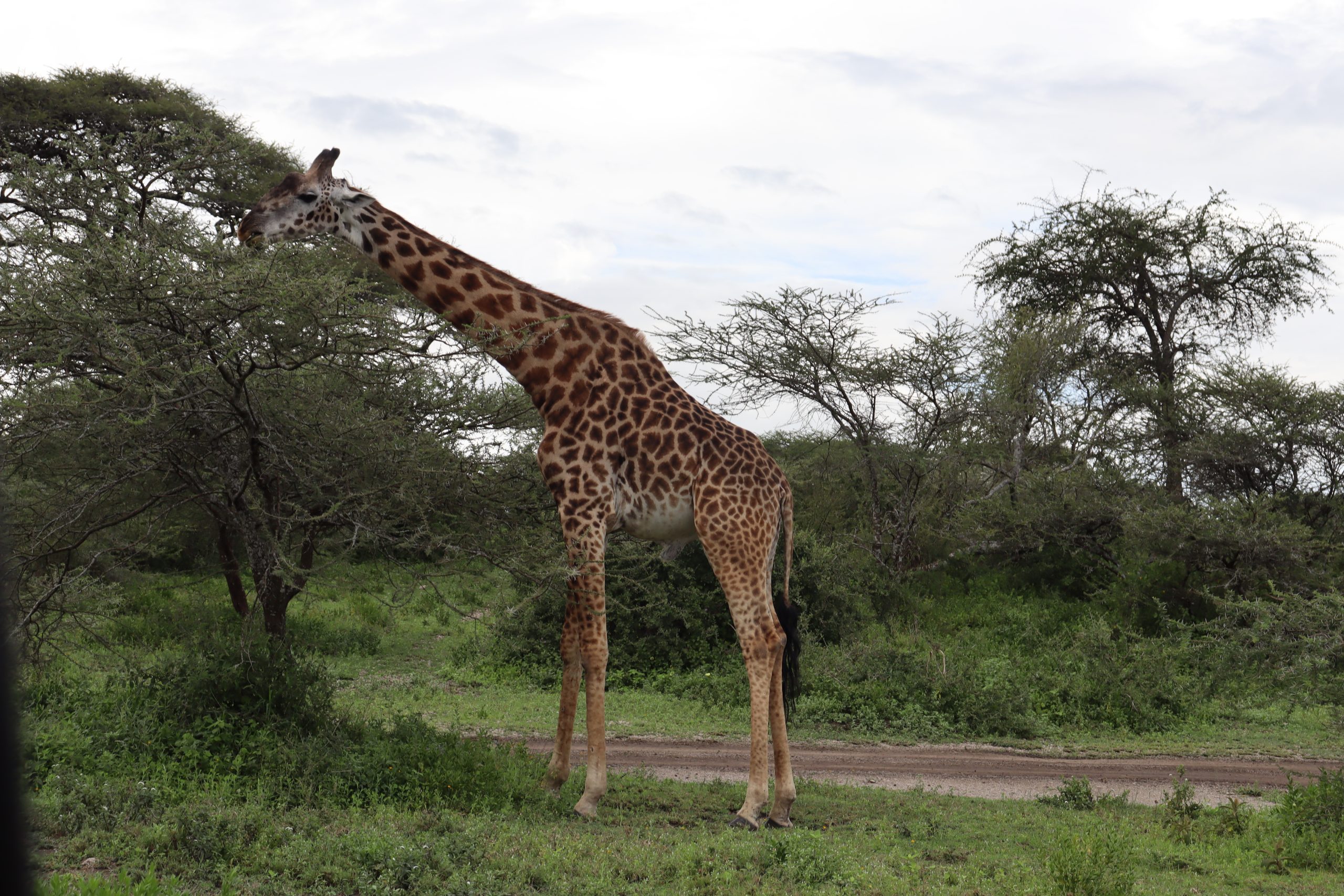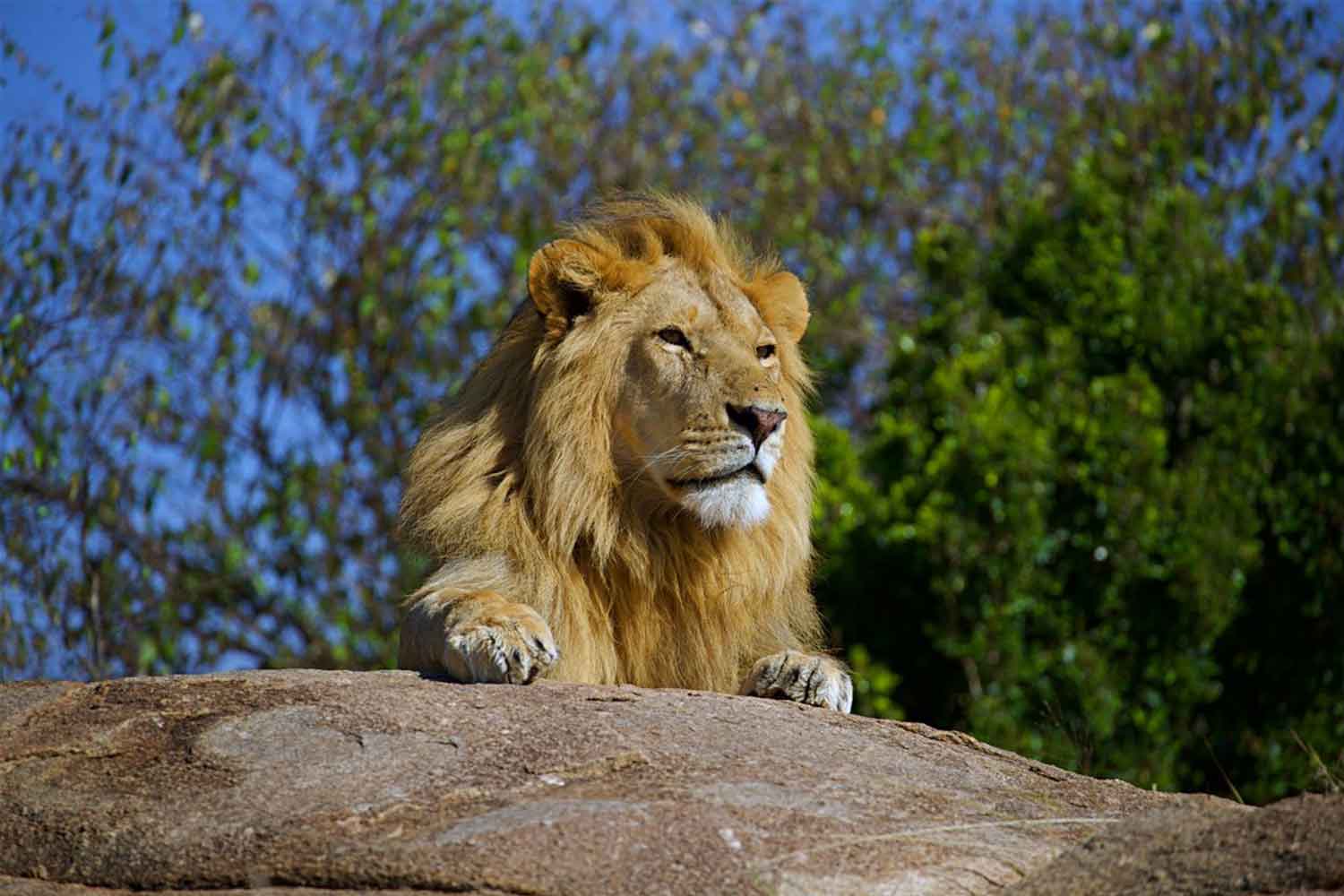Visit Tanzania: Helpful Travel Hints for an Unforgettable Journey
- Visit Tanzania: Helpful Travel Hints for an Unforgettable Journey
Travellers appreciate the friendliness of local communities, the varied cultural heritage, and the opportunity to witness nature in its purest form. Visiting Tanzania is not just a holiday—it is a life-changing experience filled with discovery.
Why Tanzania Safari is a Must Visit Destination
Tanzania is a land of breathtaking landscapes, rich wildlife, and warm hospitality. From the sweeping plains of the Serengeti to the towering peak of Mount Kilimanjaro, the country offers experiences that stay in your heart forever. Whether you are exploring the spice scented stone streets of Zanzibar or enjoying a sunset over Lake Manyara, Tanzania promises adventure and serenity in equal measure. Travellers appreciate the friendliness of local communities, the varied cultural heritage, and the opportunity to witness nature in its purest form. Visiting Tanzania is not just a holiday it is a life changing experience filled with discovery.
Best Time to Visit
You can visit Tanzania year round, but the ideal time depends on your interests. The dry season (June to October) is perfect for wildlife viewing, especially in the Serengeti and Ngorongoro Crater. For those tracking the Great Wildebeest Migration, movement varies throughout the year, so it is best to plan with a safari expert. The wet seasons (March–May and November) bring lush scenery and fewer tourists, making it excellent for photography and birdwatching. Zanzibar’s beaches are beautiful all year, though travellers often favour July to February for the calmest weather and crystal-clear waters.
Essential Travel Documents
Before travelling, ensure you have a valid passport with at least six months remaining before expiry. Most visitors need a tourist visa and can obtain it online through Tanzania’s official e-visa portal or on arrival at the airport. Make sure to carry your Yellow Fever vaccination certificate if you are arriving from a country where the disease is present. We highly recommend travel insurance, especially for safaris or mountain trekking. It’s also wise to carry digital and printed copies of your travel documents, hotel bookings, and emergency contacts in case of unexpected situations.

Health and Safety Tips
Tanzania is safe for visitors who follow normal travel precautions. Drink bottled or filtered water, and be cautious with street food if you have a sensitive stomach.We recommend consulting your doctor about malaria prevention medication before traveling to safari regions. Always listen to the instructions of your safari guide especially around wildlife. When walking in cities, keep your valuables secure and avoid isolated areas late at night. Tanzanians are friendly and welcoming, so simple manners like greeting people with “Jambo” or “Habari” go a long way in building warm interactions.
Money and Payments
Tanzania’s currency is the Tanzanian Shilling (TZS). While shillings are used for everyday purchases, many hotels and tour operators also accept US Dollars, especially newer series (issued after 2006). ATMs are widely available in major towns like Arusha and Dar es Salaam, but may be limited in remote safari areas, so withdrawing cash before travel is recommended. Credit cards are accepted in most lodges and larger establishments, though some may charge a small fee. When bargaining in markets, be friendly—negotiation is part of the culture, but always keep it respectful and fair.
Best Time to Go
Hot-air balloon safaris operate year-round, but the best time depends on what you wish to see. For the Great Migration, June to October in the Serengeti is ideal, especially near the Mara River. In Tarangire, the dry season from July to November attracts massive elephant herds to the shrinking water sources, making sightings particularly impressive. Early mornings are always chosen for flights because the wind is calm and the lighting is perfect for photography. Regardless of the month, the experience always promises beauty, tranquillity, and a deep connection to nature.
Tips for a Smooth and Enjoyable Ride
To make the most of your balloon safari, dress in comfortable layers, as mornings can be cool. A hat and sun protection are recommended once the sun rises. This activity is suitable for most ages, although children typically need to be at least seven years old. Bring your camera or phone, but make sure it has a secure strap. For those who may feel a bit nervous before take-off, remember that the flight is smooth and guided by highly trained pilots. Most travellers find the experience peaceful rather than overwhelming.

Packing Tips
What you pack depends on your itinerary. For safaris, choose neutral-coloured clothing (greens, khakis, browns) to blend with the environment. Bring a light jacket for cool mornings and evenings. Comfortable walking shoes, sunglasses, sunscreen, and a hat are essential. If climbing Mount Kilimanjaro, pack multiple clothing layers to adapt to changing temperatures. For Zanzibar, lightweight tropical clothing and swimwear will keep you comfortable. A universal adapter, a power bank, personal medication, and binoculars for wildlife viewing are also useful. Remember: pack light, as many safari flights have strict luggage limits.
Responsible and Respectful Travel
Visiting Tanzania offers a chance to engage with diverse cultures, landscapes, and wildlife. Support local businesses by buying handmade crafts and dining at community-owned restaurants. Respect cultural customs—for example, dress modestly when visiting villages or religious sites. Wildlife conservation is important here, so never feed animals or stray from marked trails. By choosing ethical tour operators and eco-friendly lodges, you contribute to protecting Tanzania’s natural heritage. Travelling responsibly ensures that the beauty of Tanzania remains preserved for future generations, while also enriching your own travel experience.
EXCELLENTTrustindex verifies that the original source of the review is Google. Going on a safari in Tanzania was one of the best experiences of my life, and I highly recommend that everyone experiences it at least once. I chose a camping safari because I wanted to spend as much time as possible in as many parks as possible, and also have the opportunity to camp inside the parks themselves, which makes the experience even more intense and authentic. I travelled solo, and Tolio placed me in an absolutely fantastic group, made up of a family and another traveller. Our guide, Francis, was outstanding, as was the cook who travelled with us. We always had hot and delicious meals, even in the middle of the safari. I truly believe that the people make the safari, and this was very evident during this experience. The guide explained everything about the animals, shared stories about the local culture, and showed great respect for the animals and for other guides — all with great professionalism. Throughout the safari, the atmosphere was always light, positive and joyful. We brought biscuits for the journey and, over the course of five days, we became a real family. We sat together at the table to talk, sing, share stories and then rest. It was a beautiful and genuine sense of togetherness. We made a point of always having the guide and the cook sitting at the table with us. Regarding the campsites: The Serengeti campsite could benefit from better bathroom facilities, and each vehicle could have some washing basins to help with dishwashing. The Ngorongoro campsite was very good, with excellent bathroom facilities. I especially loved the fireplace and the social atmosphere in the common area. The hardest moment was when the safari ended. We didn’t want to separate or stop doing safari. I was truly happy during those days. When I chose this safari, Tolio sent me a very detailed program, which helped align expectations. During the trip, we were also surprised with one night in a lodge, which made the experience even more special 😊 I met many travellers who were frustrated with safaris booked through other companies that did not deliver what was promised, which made me appreciate this choice even more. My main recommendations are: choose carefully what type of safari you want and which parks you want to visit - clearly define the type of accommodation you want (camping, lodge, or mixed) - read carefully the detailed program provided by the company - be flexible — not everything is guaranteed in nature. The migration, for example, does not happen when we want it to. Animals don’t wait for us. I highly recommend a camping safari, whether you are travelling solo, with friends, as a couple or with family. Tolio was impeccable — the entire support team helped greatly with logistics, organised transfers to the accommodation, and were always kind and available.Posted onTrustindex verifies that the original source of the review is Google. Amazing 4-day safari experience! We spotted nearly all the animals we hoped for, enjoyed tasty meals with lots of options, and had the unforgettable thrill of camping near zebras and elephants. Our guide Gerry was fantastic – experienced, informative, and easygoing. The car was top quality, and the whole trip was excellent value for money. Highly recommend this operator for anyone planning a safari in Tanzania!Posted onTrustindex verifies that the original source of the review is Google. Excellent Safari Experience with Toilo Tours & Safaris Our safari with Toilo Tours & Safaris was truly unforgettable. Julius did an outstanding job preparing a well-organized itinerary that covered all the highlights while ensuring a smooth and enjoyable journey. The lodges selected were comfortable, beautiful, and offered a perfect blend of nature and luxury. The food throughout the trip was delicious and exceeded our expectations. Every detail was thoughtfully planned, making the entire experience stress-free and memorable. We highly recommend Toilo Tours & Safaris for anyone looking for a professional, well-arranged, and authentic safari adventure. Thank you, Julius, for your excellent service and warm hospitality!Posted onTrustindex verifies that the original source of the review is Google. Great experience from start to finish! Julius was very kind and responsive on WhatsApp and even met us the day before to explain everything. Our guide Maximilian was full of energy, always cheerful, and made the trip so much fun. The camping inside the national parks was a unique highlight — comfortable tents, tasty meals, and even a shared charging area. We didn’t spot rhinos or leopards, but saw many other animals, and the scenery itself was absolutely stunning. Highly recommended!Posted onTrustindex verifies that the original source of the review is Google. Wonderful experience! We had a lovely time on safari in Tanzania thanks to great organisation and communication with Julius. Always on time, everything was prearranged and ready-to-go. We got clear info what to expect and what’s the plan for the tour. Both pick-up and drop off went smoothly as well. Couldn’t recommend it more.Posted onTrustindex verifies that the original source of the review is Google. Our safari adventure through Tanzania was truly unforgettable. From the heart of the savannah to the soft beaches of Zanzibar, every moment felt like something out of a dream! The locations were wild and beautiful, yet felt completely safe and comfortable. At night, we were serenaded by the sounds of nature, a powerful reminder that we were guests in something much bigger than ourselves! Julius took care of everything with incredible professionalism, making the whole journey feel effortless! Our guide Khaleed was outstanding, just a kind, deeply knowledgeable, and clearly passionate about the land and its wildlife. The car was in top condition, so we avoided problems we saw other vehicles run into such as breakdowns, getting stuck in the mud and flat tires. We just cruised through smoothly and without stress. The food was great, and the overall atmosphere was the perfect blend of adventure and comfort. But what made this trip truly life-changing was Tanzania itself and its people. There’s something deeply inspiring about the way Tanzanians live. Their perspective on life is rooted in community, balance, and presence. It’s not just about what they say, it’s how they live, how they treat others, and how they find joy and meaning in the everyday. I felt a genuine connection right away, like I wasn’t just visiting, I was welcomed! Go to Tanzania if you’re looking to step outside your bubble, to reconnect with the world and yourself, and to experience a way of life that’s both humbling and uplifting! It’s not just a trip. It’s a gift. And remember! Hakuna matata and pole pole! 🐘🌍Posted onTrustindex verifies that the original source of the review is Google. I want to express my gratitude to the team of Toilo for tailoring a private bush to beach experience for us that we will never forget! Julius worked hard to give us more than we wanted on only 2 months notice. His response time is impressively low, regardless of the time of day. He is very polite, and it was great to meet him in person because he is a likeable person. We (a couple) wanted a mid-range safari and Zanzibar tour, and the result exceeded our expectations on every level. The price was fair, and I would probably not save anything/much if I would organize the whole journey myself. All of our accommodations were fully equipped, comfortable and in prime locations! The staff at each accommodation were so great to us, and the chefs never disappointed in making fresh and healthy meals. Our car was in prime condition and we had a cooler with so much water, juice, soda, beer and wine that we could not even get through a third of the stock. Lastly, a big thanks to our safari guide/driver Khalid/Khaleed. We were so lucky to get him because of hist vast knowledge of the flora and fauna, in addition to his great driving skills. We felt safe with him behind the wheels, and he always ensured that we had enough of each animal sighting before proceeding. He is also a very relaxed and genuine guy, the same can also be said about Julius.Posted onTrustindex verifies that the original source of the review is Google. This was one of the most amazing experiences of my life. Julius with Tolio tours was very easy to communicate with and answered all my questions. Everything was smooth from the get go! We had the most amazing chef who cooked fresh meals everyday! From what we could see, this was the best company for solo travellers, couples, friends and people who are below the age of 50! I couldn’t be happier with my experiencePosted onTrustindex verifies that the original source of the review is Google. A big thank you to Julius for turning the celebration of my husband's 50th birthday into a magical and unforgettable family event. He organized a tailor-made safari and accommodations with excellent value for money, along with a French-speaking guide, Amani, who was highly knowledgeable about the savannah (especially the Serengeti), and a cook who prepared delicious homemade meals for us. We shared some truly wonderful moments with both of them, and they were also very respectful of our family's privacy. We also had the incredible chance to take a hot air balloon flight over Serengeti National Park. Floating above the plains at sunrise, with wildlife roaming below us, was a breathtaking and emotional experience we'll never forget. Julius exceeded our expectations by always being attentive and communicating effectively, both well before and throughout our trip. We warmly recommend him, as he will be able to advise you based on your preferences and budget, and find the best options to ensure your satisfaction.
